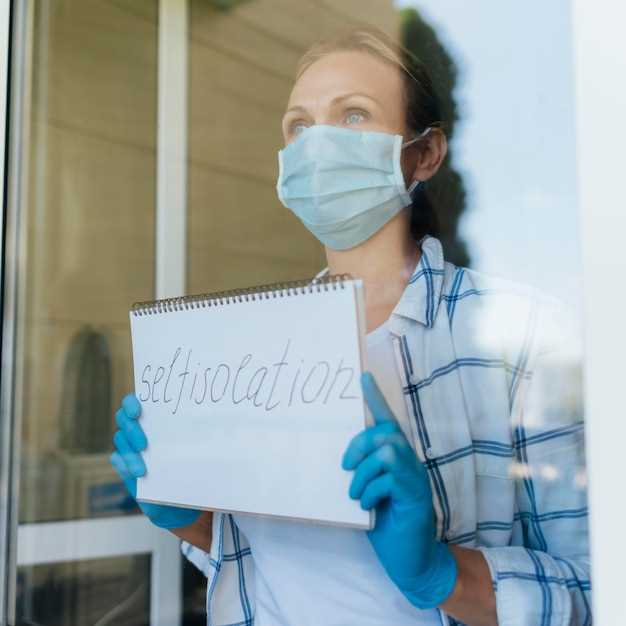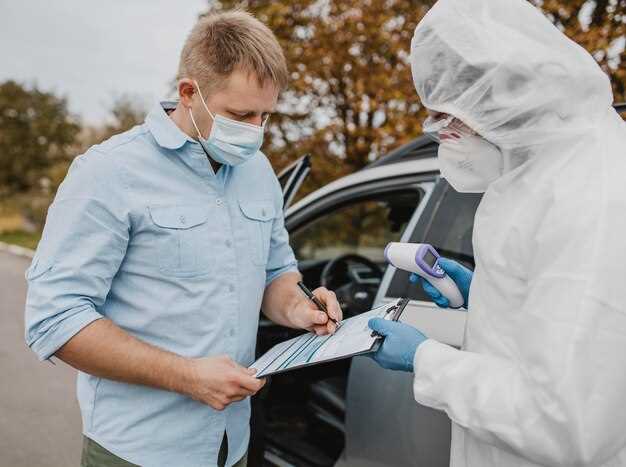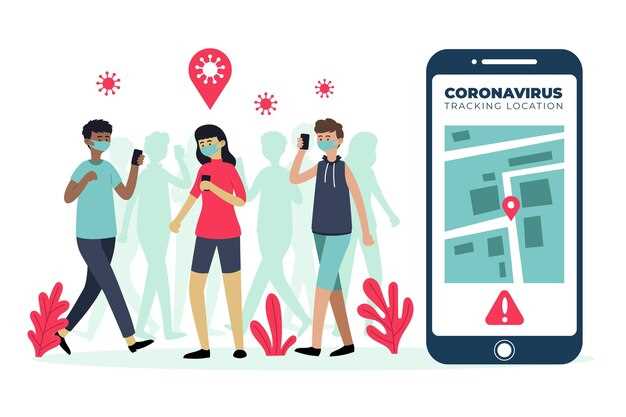
Access to reliable and convenient testing facilities is crucial for maintaining personal and community health. Whether you need routine screenings, specialized diagnostic tests, or urgent medical attention, knowing where to find nearby clinics can save time and provide peace of mind.
Local clinics offer a range of testing services to address various health concerns, including infectious diseases, chronic conditions, and preventive care. Identifying a clinic that suits your needs depends on factors such as location, affordability, and the specific tests offered.
In this guide, we’ll explore practical steps to locate testing centers in your area, considerations for choosing the right facility, and tips to prepare for your visit. By taking proactive measures, you can ensure timely and effective healthcare access for yourself and your loved ones.
Understanding the Importance of Health Testing
Health testing plays a vital role in identifying potential medical issues early, monitoring existing conditions, and promoting overall well-being. Regular screenings can detect problems before symptoms appear, enabling timely intervention and improving treatment outcomes.
From routine blood work to specialized diagnostic exams, testing provides valuable insights into your body’s condition. It empowers individuals to make informed decisions about lifestyle changes, medication, or further medical consultations. Below is a breakdown of common health tests and their benefits:
Understanding the importance of these tests and scheduling them at appropriate intervals can lead to healthier, longer lives. Proactive health management begins with regular and accessible testing services.
Why Regular Screenings Are Essential

Regular health screenings are a cornerstone of preventive medicine, helping to identify potential health issues before they become serious. Early detection allows for more effective treatments and can significantly improve outcomes for a wide range of conditions.
Screenings are especially important for monitoring silent health risks, such as high blood pressure or elevated cholesterol, which may not present noticeable symptoms. By catching these issues early, you can take steps to mitigate risks and prevent complications like heart disease or stroke.
Additionally, routine check-ups help establish a health baseline, allowing you and your healthcare provider to track changes over time. This proactive approach not only supports immediate health goals but also contributes to long-term well-being.
Consistent testing is a simple yet powerful way to stay informed about your health, make informed decisions, and ensure peace of mind for yourself and your family.
How to Search for Testing Locations
Finding a nearby clinic for health testing is easier than ever, thanks to digital tools and local resources. By following a few simple steps, you can quickly locate a facility that meets your needs.
- Use Online Maps: Platforms like Google Maps or Apple Maps allow you to search for clinics by entering keywords such as “testing clinics near me” or specifying the type of test you need.
- Check Health Department Websites: Local or state health departments often provide directories of testing facilities, including information on free or low-cost options.
- Search Healthcare Provider Networks: Many insurance providers have online tools to help you find in-network clinics for specific tests.
Once you’ve identified potential locations, it’s helpful to evaluate them based on specific criteria:
- Proximity: Choose a clinic that is conveniently located to minimize travel time and ensure ease of access.
- Services Offered: Confirm that the clinic provides the specific tests you require.
- Hours of Operation: Check if the clinic’s schedule aligns with your availability.
- Reviews and Ratings: Read feedback from other patients to gauge the quality of care and customer service.
Taking the time to research and compare options ensures you’ll find a testing location that is both reliable and convenient.
Effective Online Tools and Resources
Online tools and resources have revolutionized the way we search for healthcare services, making it simple to locate testing clinics in your area. Below are some of the most effective platforms and methods to find the information you need.
- Search Engines: Google and Bing allow you to search for clinics with specific keywords, such as “COVID-19 testing near me” or “STD testing clinics.” Many results include maps, reviews, and direct contact information.
- Clinic Finder Tools: Websites like Healthgrades or Zocdoc provide directories of local clinics, allowing you to filter results by location, service type, and user ratings.
- Health Department Websites: Local and national health department sites often feature interactive tools for finding testing facilities and viewing real-time updates on available services.
Social media and community-based apps are also valuable resources:
- Social Media Groups: Platforms like Facebook have community groups where users share recommendations and experiences with local clinics.
- Nextdoor App: This neighborhood-focused app connects you with people in your area who can suggest trusted clinics for specific tests.
- Review Platforms: Yelp and similar platforms provide detailed feedback on clinics, including patient experiences and staff quality.
By combining these tools, you can gather comprehensive information, ensuring that you choose the best clinic for your needs with confidence.
Types of Tests Available at Clinics
Clinics offer a wide range of testing services to address various health concerns. The type of test you require will depend on your symptoms, risk factors, and the advice of your healthcare provider. Below are some common tests available at many local clinics:
- Blood Tests: These tests can measure cholesterol, glucose, hormones, and other vital components of your blood. They help in diagnosing conditions such as diabetes, anemia, and thyroid disorders.
- Urine Tests: Urine tests are commonly used to detect urinary tract infections (UTIs), kidney disease, and diabetes. They may also be used for drug screening.
- COVID-19 Tests: PCR and rapid antigen tests are widely available to detect current infections, with many clinics offering walk-in testing or appointments.
- STD/STI Testing: Clinics provide testing for sexually transmitted infections (STIs) such as HIV, syphilis, chlamydia, and gonorrhea, often through blood or urine samples.
- Cancer Screenings: Tests like mammograms, pap smears, and prostate exams help detect early signs of cancer. Early detection is crucial for effective treatment.
- Allergy Tests: These tests identify specific allergens that may trigger allergic reactions, from pollen to food sensitivities, typically through blood tests or skin prick tests.
- Pregnancy Tests: Clinics offer both urine and blood pregnancy tests to confirm pregnancy, with blood tests providing earlier and more accurate results.
- Genetic Testing: Some clinics offer genetic testing for hereditary conditions, helping individuals understand risks for diseases like cystic fibrosis or breast cancer.
Understanding the types of tests available at local clinics will help you make informed decisions about your health needs. Always consult with a healthcare provider to determine which tests are most relevant for your situation.
Understanding Your Options for Care
When seeking testing services at local clinics, it’s important to understand the various options for care available to you. Different clinics may offer a range of testing, treatment, and follow-up services. Here’s a breakdown of the primary care options you can expect:
- Primary Care Clinics: These clinics provide general health services and screenings, including routine check-ups and preventive care. They can perform a variety of tests and refer you to specialists if needed.
- Urgent Care Centers: For immediate or after-hours care, urgent care centers offer quick testing services, such as COVID-19, flu, and strep throat tests, as well as injury care and basic diagnostics.
- Specialty Clinics: Some clinics focus on specific areas of health, such as fertility, dermatology, or cardiology. These clinics are ideal for more targeted tests and treatments related to specific conditions.
- Public Health Clinics: Often government-funded, these clinics provide essential services like vaccinations, screenings, and health education, typically at low or no cost to the patient.
- Mobile Clinics: In some areas, mobile clinics bring testing services directly to your neighborhood. These clinics are especially useful for individuals who have difficulty traveling to a fixed location.
- Telemedicine Services: Many clinics offer telehealth consultations, allowing you to consult with a doctor online and receive guidance on necessary tests and treatments from the comfort of your home.
Each care option comes with its benefits and limitations, so it’s important to consider your personal health needs, convenience, and budget when selecting a clinic. Always confirm with the clinic about the specific tests and services they provide to ensure they meet your requirements.
Factors to Consider When Choosing a Clinic
When selecting a clinic for testing, there are several important factors to consider to ensure you receive quality care. Here are key elements to keep in mind:
- Location: Choose a clinic that is conveniently located to minimize travel time and avoid delays, especially if you need urgent care or frequent visits.
- Cost: Compare the costs of services, including whether the clinic accepts insurance, offers payment plans, or provides discounts for self-pay patients. Some clinics also offer sliding-scale fees based on income.
- Services Offered: Ensure the clinic offers the specific tests or screenings you need. Some clinics may specialize in certain types of care, while others provide a broader range of services.
- Hours of Operation: Consider the clinic’s hours of operation, especially if you need evening, weekend, or walk-in availability. Flexibility can be important for busy schedules.
- Reputation: Check online reviews, ratings, and testimonials to get a sense of the clinic’s quality of care, patient satisfaction, and overall experience.
- Professional Staff: Ensure the clinic has qualified, experienced professionals, such as certified lab technicians or licensed medical providers, who can handle your tests and provide accurate results.
- Wait Times: Consider the clinic’s wait times, especially if you need results quickly. Some clinics offer same-day or expedited testing for urgent cases.
- Privacy and Confidentiality: Make sure the clinic follows strict privacy practices to protect your personal health information, particularly for sensitive tests like STD or genetic testing.
By taking these factors into account, you can make an informed decision and choose a clinic that best meets your health needs and expectations.
Convenience, Cost, and Quality of Service

When choosing a clinic for testing, three key factors often determine your decision: convenience, cost, and quality of service. Balancing these elements ensures you receive the care you need without compromising on your health or budget.
- Convenience: Accessibility is a primary concern when selecting a clinic. Choose a clinic with flexible hours, proximity to your home or workplace, and easy appointment scheduling. Some clinics also offer walk-in services or mobile testing options for added convenience.
- Cost: Testing prices can vary significantly between clinics, especially for specialized or urgent care tests. Before booking an appointment, inquire about the cost of the test, whether it’s covered by insurance, and any available discounts or payment plans. Public health clinics or nonprofit organizations may offer lower-cost options.
- Quality of Service: The quality of care you receive should be a top priority. Look for clinics with qualified, experienced healthcare professionals, modern testing equipment, and a clean, comfortable environment. High-quality service also includes clear communication, accurate test results, and follow-up support if needed.
Finding a clinic that strikes the right balance between convenience, cost, and service quality is essential for a positive testing experience. Take the time to evaluate these factors to ensure you get the best value for your health needs.

